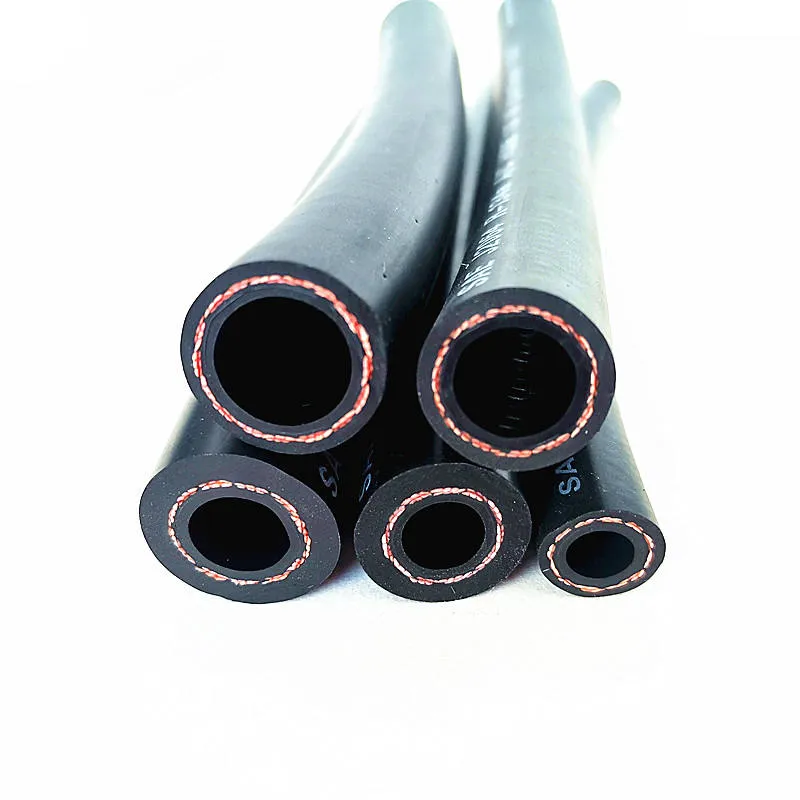12-р сар . 15, 2024 02:02 Back to list
Top Manufacturers of Rubber Hydraulic Hoses for Industrial Applications
Exploring the World of Rubber Hydraulic Hose Manufacturers
In the dynamic landscape of industrial components, rubber hydraulic hoses play a crucial role in various sectors, including construction, manufacturing, agriculture, and automotive industries. These hoses are specifically designed to convey hydraulic fluid under pressure and withstand extreme conditions. With the increasing demand for efficient machinery, the market for rubber hydraulic hoses has experienced significant growth, resulting in an array of manufacturers specializing in this essential product.
Understanding Rubber Hydraulic Hoses
Rubber hydraulic hoses are made from a combination of natural and synthetic rubber, reinforcing materials, and various additives that enhance durability and performance. The primary function of these hoses is to transport hydraulic fluids such as oil, water, and other liquids crucial for maintaining the functionality of hydraulic systems. The ability to tolerate high pressure, extreme temperatures, and exposure to harsh environmental conditions is what sets rubber hydraulic hoses apart from other types of hoses.
The Manufacturing Process
Manufacturing rubber hydraulic hoses involves several intricate steps. The process begins with the selection of high-quality raw materials, which include various grades of rubber, textile fabrics, and steel wires. The specific requirements of the hoses determine the type and combination of these materials.
1. Compounding The rubber is mixed with other components to create a compound that suits the operational demands of the hose. This stage is crucial as it influences the hose's resistance to abrasion, temperature fluctuations, and chemical exposure.
2. Hose Building The compounded rubber is then fed into a hose extruder, where it is formed into the desired shape and diameter. During this stage, reinforcing materials, such as steel braids or spirals, are incorporated to enhance flexibility and strength.
3. Curing After the hose is built, it undergoes a curing process. This heat treatment helps to stabilize the rubber and join the various layers together, improving the overall integrity and performance of the hose.
4. Testing Quality control is paramount in the production of rubber hydraulic hoses. Manufacturers conduct rigorous testing, including burst tests, pressure tests, and fatigue tests, to ensure that each hose meets industry standards and safety requirements.
Key Players in the Market
rubber hydraulic hose manufacturers

The rubber hydraulic hose manufacturing industry is home to numerous companies, each with its unique strengths and specializations. Some of the leading manufacturers have gained global recognition for their commitment to quality, innovation, and customer service.
1. Parker Hannifin Corporation A well-established name in the industry, Parker offers a comprehensive range of hydraulic hoses and fittings. They are known for their advanced technology and wide product selection, catering to various industries.
2. Goodyear Rubber Products With a long history of manufacturing, Goodyear provides durable hydraulic hoses designed for heavy-duty applications. Their products are widely used in sectors such as agriculture and construction.
3. Continental AG This German multinational corporation is a major player in the rubber and plastics industry. Continental specializes in high-performance hydraulic hoses that meet stringent safety standards across different regions.
4. Semperit AG Holding An Austrian manufacturer, Semperit focuses on producing high-quality hydraulic hoses that are durable and reliable. Their use of innovative materials ensures that their products can withstand demanding conditions.
5. Gates Corporation Gates is renowned for its cutting-edge products in the hydraulic market, specializing in hoses that offer excellent flexibility and longevity. The company is committed to sustainability and reducing their environmental impact.
Future Trends
As technology continues to evolve, the rubber hydraulic hose manufacturing industry is expected to adapt. Innovations such as smart hoses that monitor fluid pressure and temperature in real-time are on the horizon. Moreover, the rising focus on sustainability is leading manufacturers to explore eco-friendly materials and production methods, further shaping the future of this vital industry.
Conclusion
Rubber hydraulic hoses are essential components in various applications, and the demand for these products is expected to continue growing. Throughout the years, manufacturers have worked diligently to enhance the quality, safety, and versatility of hydraulic hoses. As industries evolve and technology advances, rubber hydraulic hose manufacturers will play an integral role in forging a path toward a more efficient and sustainable future. With a commitment to innovation and quality, these manufacturers not only meet current demands but also set the stage for future advancements in hydraulic technology.
-
Best Four Steel Wire Spiral Hose Hydraulic R12 – Durable High-Pressure Hose Manufacturer
NewsJul.08,2025
-
High-Quality 1/4 Hydraulic Hose – Soft, Flexible & Durable Rubber Hoses for Industrial Use
NewsJul.08,2025
-
1 1 2 Inch Hydraulic Flexible Hose - Durable, Reliable, High-Pressure Solutions
NewsJul.07,2025
-
High-Quality 1 2 Rubber Hose - Durable, Flexible Hydraulic Solutions
NewsJul.07,2025
-
Discover SAE Hydraulic Hose Types - High Quality & Durable Hoses from Leading Factory Supplier
NewsJul.06,2025
-
High Pressure Wire Hydraulic Rubber Hose Supplier Durable & Reliable 1SN Hose Solutions
NewsJul.06,2025
